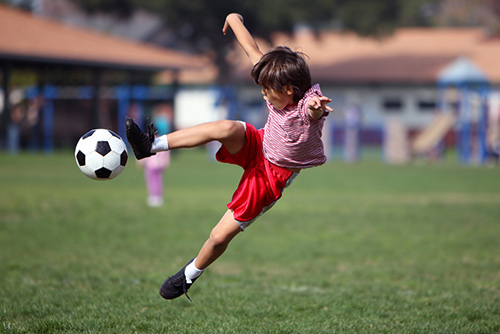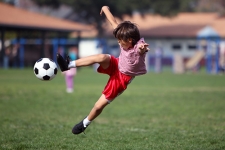
What are some common signs and symptoms associated with concussions?
- Appearing dazed or stunned
- Is confused about assignment or position
- Forgets an instruction
- Is unsure of game, score, or opponent
- Moves clumsily
- Answers questions slowly
- Loses consciousness (even briefly)
- Shows behavior or personality changes
- Can’t recall events before the hit or fall
- Headaches or “pressure” in head
- Nausea or vomiting
- Balance problems or dizziness
- Double or blurry vision
- Sensitivity to light
- Sensitivity to noise
- Feeling sluggish, hazy, foggy, or groggy
- Concentration or memory problems
- Confusion
- “Not feeling right.”
If you suspect that an athlete has sustained a concussion, they need to be removed from play ASAP – no tournament, trophy, or title is worth the potential damage that could be caused by ignoring the symptoms of a concussion and allowing a child to continue to play. Once the athlete is removed from the game, they need to be evaluated by a medical professional as soon as possible. It’s important to remember that concussions take time to heal – and that time is dependent not only on the severity of the injury but also to the person. No two individuals heal the same way or in the same amount of time. Your athlete shouldn’t be allowed to practice/train/compete again until cleared by their doctor. Even then, the return to play may be a graduated one – getting back in the game too soon after a concussion (while the brain is still healing) substantially increases the risk of your child sustaining subsequent concussions, something that can cause permanent brain damage.

